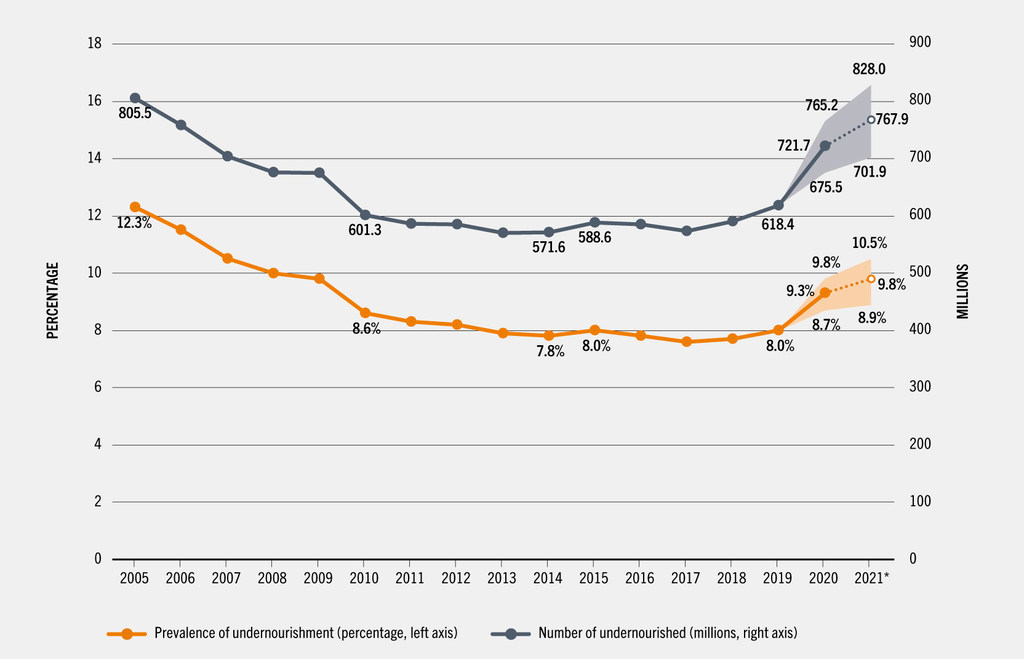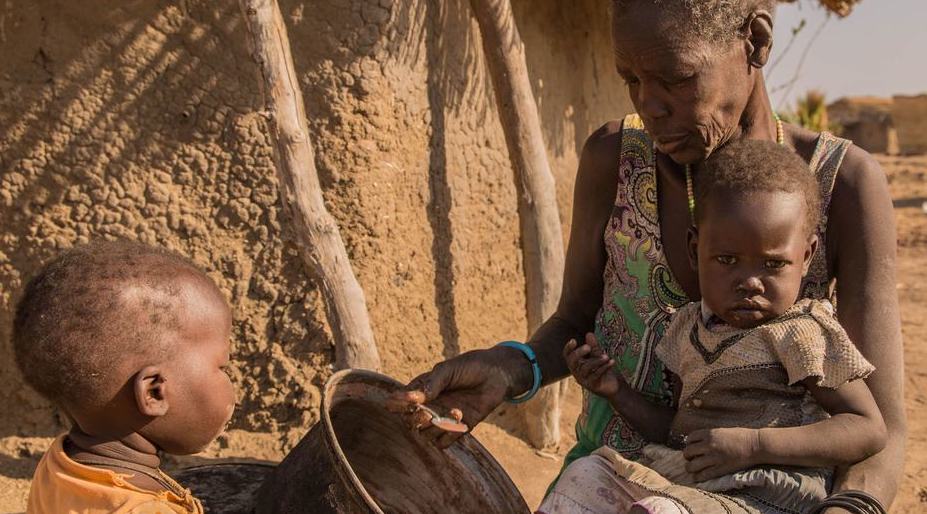Globally, the number of people affected by hunger has grown since 2019, reversing years of gradual progress, according to a report by the United Nations.
Between 702 and 828 million people worldwide (almost 10% of the total population) faced hunger in 2021, an increase of about 46 million since 2020 when figures shot up as a result of the pandemic-induced economic crisis, and 150 million more since 2019, the State of Food Security and Nutrition in the World (SOFI) report showed.
"These are people whose livelihoods and prospects for a fruitful and dignified life are being crippled, with their futures eroded and potential and aspirations held back", UN's Deputy Secretary-General, Amina Mohammed, said, adding that the figures were a "shocking report card of our efforts to end hunger."

Hunger affected around 46 million more people in 2021 compared to 2020, and a total of 150 million more people since 2019, before the COVID-19 pandemic. Source: FAO
Hunger varies across the world: around 2.3 billion people (almost 30% of the global population), were in moderate or severe food insecurity in 2021 — 350 million more than before the outbreak of the pandemic. Overall, women are more heavily impacted than men.
Almost 3.1 billion people could not afford a healthy diet in 2020, up 112 million from 2019. According to the UN, this reflects the effects of inflation in consumer food prices as a result of the pandemic and now also the war in Ukraine, which has contributed to food insecurity by disrupting the supply of staple products and driving up transport costs.
Related News
- Ukraine starts harvest, but export to global markets remains largely blocked
- Russia is putting world in danger of famine, EU warns
- Around 193 million people acutely food insecure in 2021
"We continue to move away from our goal of ending hunger by 2030. The ripple effects of the global food crisis will most likely worsen the outcome again next year," International Fund for Agricultural Development (IFAD) President Gilbert Houngbo stressed.
Food insecurity among children
The report specifically highlighted the dire situation of children facing hunger. An estimated 45 million children under the age of five were suffering from "wasting," the deadliest form of malnutrition, which can see children’s risk of death increase by up to 12 times.
Meanwhile, another 149 million children under the age of five lacked essential nutrients, resulting in stunted growth and development. On the other end of the scale, 39 million were overweight.
Projections for future
The SOFI analysis projects that, even if a global economic recovery is taken into consideration, nearly 670 million people (8% of the world population) will still be facing hunger in 2030, when the Sustainable Development Goal (SDG) of ending hunger, food insecurity and malnutrition was supposed to be attained.
It added that evidence suggests governments should repurpose the resources being used to "incentivise the production, supply and consumption of nutritious foods," which the organisations involved with the report argued will contribute to making healthy diets less costly, more affordable and equitably for all.

